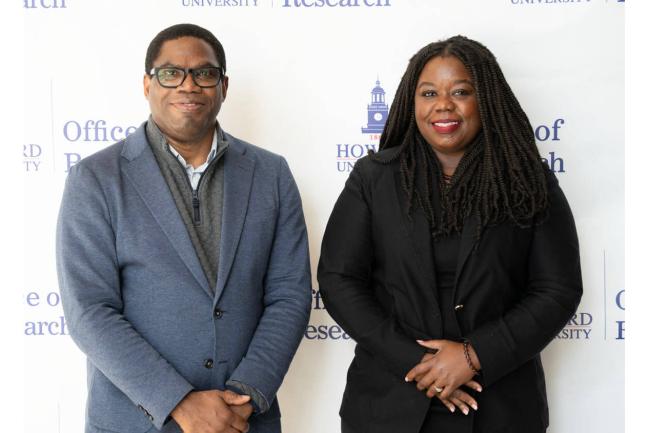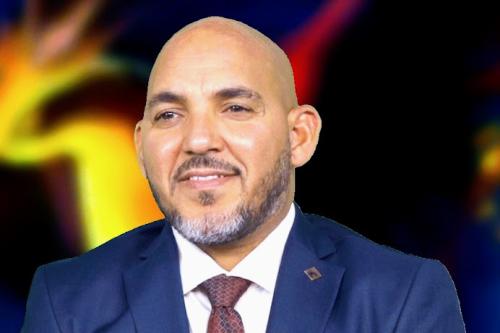On Tuesday, April 15, researchers from across academia and industry, including Microsoft and Batelle, gathered at the Artificial Intelligence and Machine Learning Symposium to share their latest research and to network. Organized by Office of Research Senior Director of Research Development Pamela Clarke and College of Engineering and Architecture Assistant Professor Anietie Andy, Ph.D., the event showcased the diverse and increasingly essential applications of AI and machine learning. From linguistics to medical imaging, the researchers showcased how revolutionary this technology can be, as well as its limitations.
Many of the presentations focused on the power of AI to improve image quality and analyze massive amounts of data. This could lead to everything from a deeper understanding of how the brain functions to faster, more accurate, and cheaper imaging of signs of disease at the cellular level.
Along with potential research applications, several of the talks addressed ways to make the AI technology we use in our daily lives — from chatbots to transcription services — better. For example, Denae Ford Robinson, Ph.D., a principal researcher for Microsoft Research, helped build a framework for identifying the potential psychological impacts of services like ChatGPT. Human-Centered AI Center Senior Research Scientist Lucretia Williams, Ph.D., worked with Google to record over 600 hours of African American voices with the goal of reducing the error-rate of speech-to-text devices that Black users face.
The symposium ended with a roundtable on the ethics of AI, focusing especially on its growing use in education. The discussion gave faculty and students the opportunity to acknowledge both the technology’s usefulness in things such as coding and research and the potential issues of plagiarism and inaccurate information.
These projects and discussions only scratch the surface of the breadth of AI work being done at Howard. Andy and Clarke intend for this to be the start of a broad expansion of the university’s AI projects, and plan to make the symposium a recurring meeting where researchers can connect and discuss opportunities in the field.
Welcoming the attendees, Clarke emphasized the need to work together to position Howard as a leader in AI research.
“Our overall vision is to build out a national AI research center led by Howard University,” she said. “It’s an area of research where we have strength, but we have been working in silos. So this is one of the first opportunities from an institution standpoint to really get a sense of what our faculty are doing and to hear from our collaborators.”





